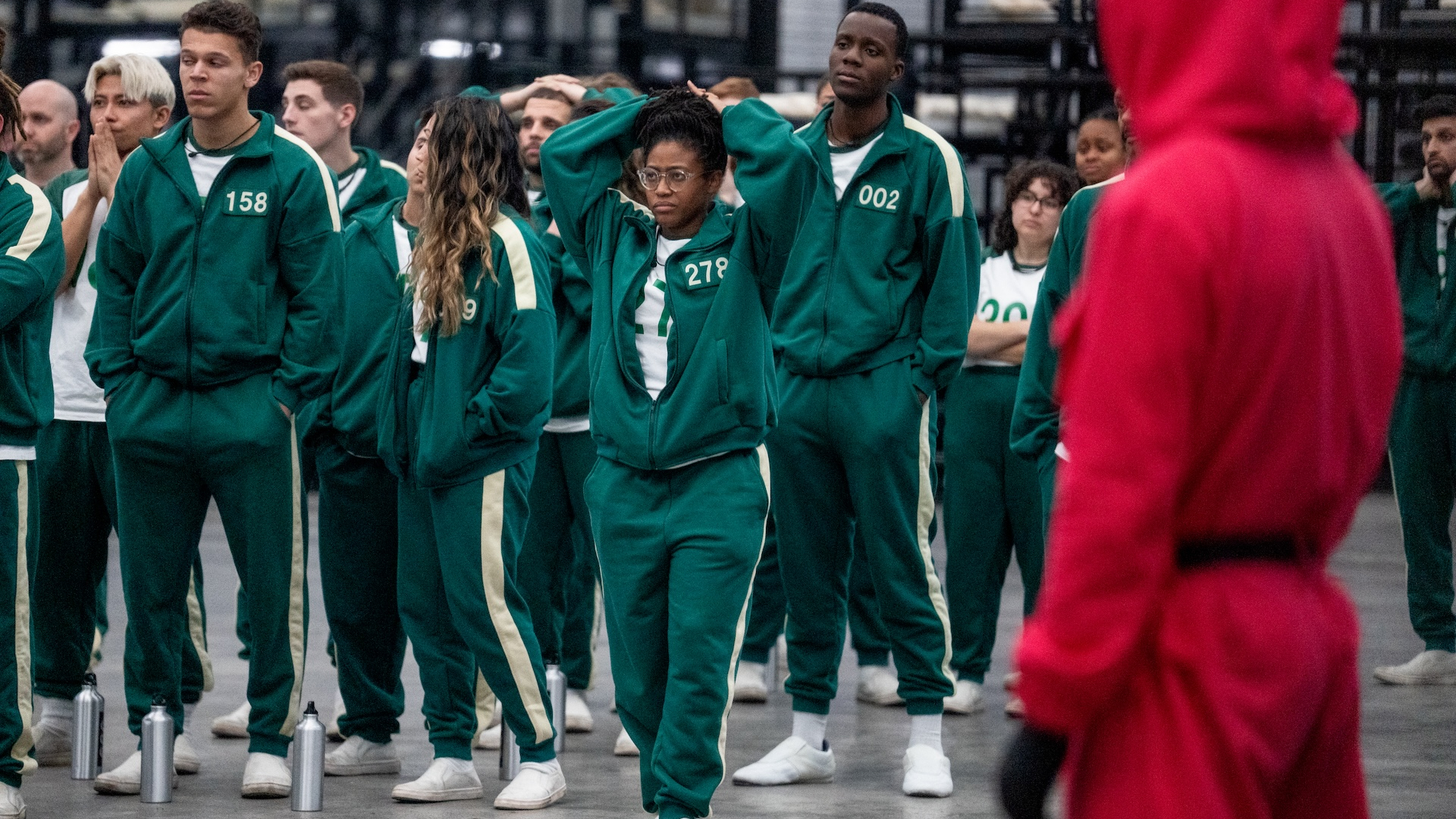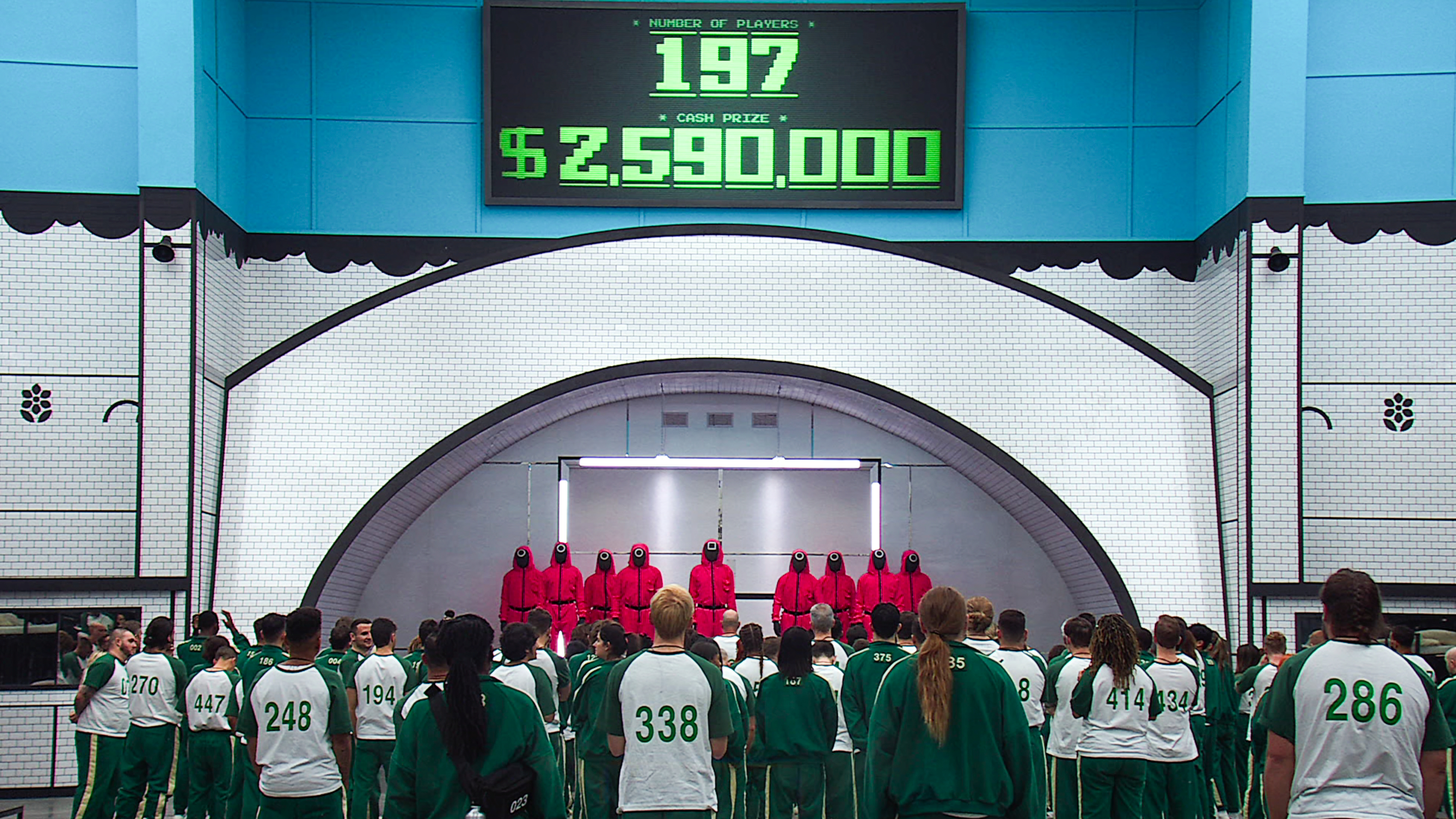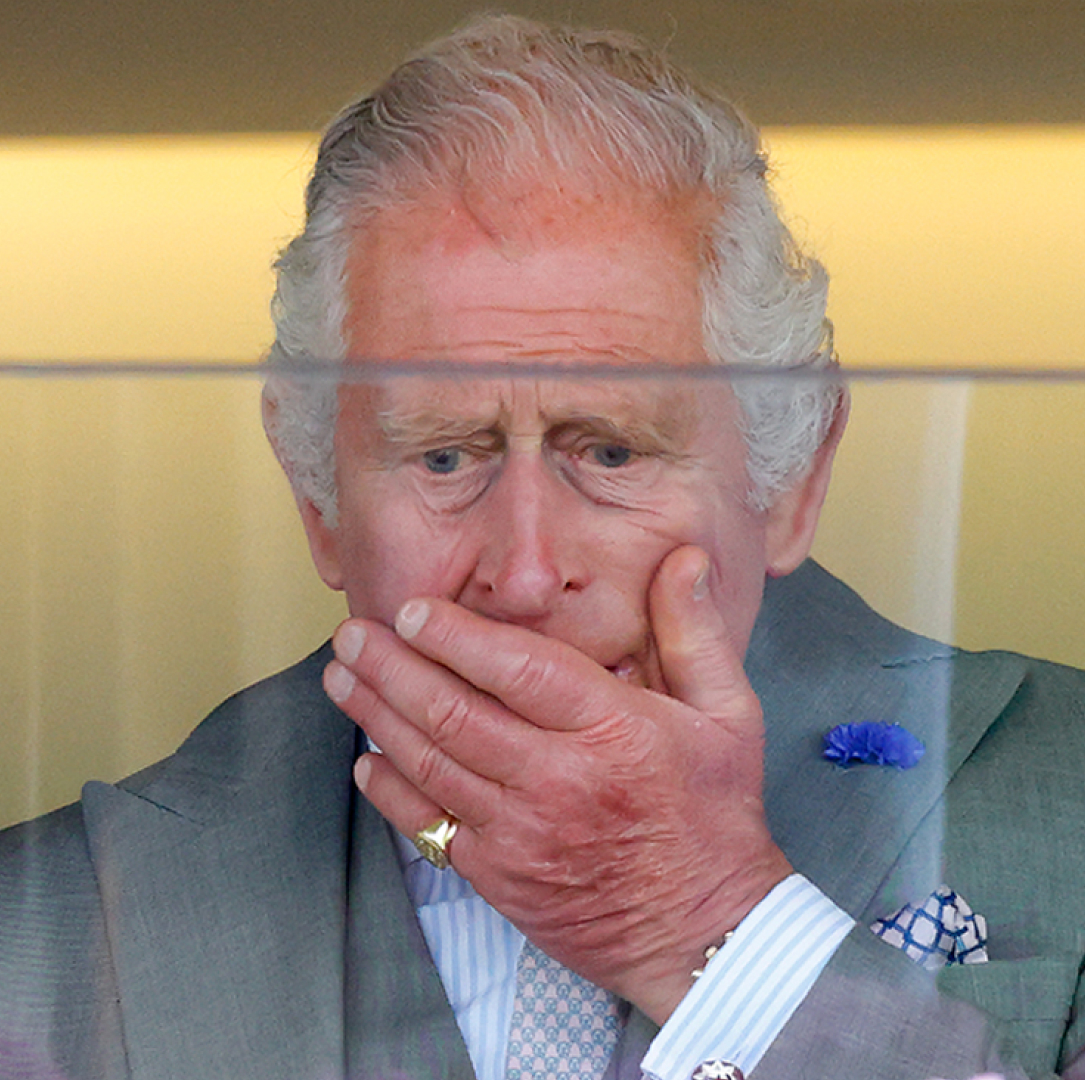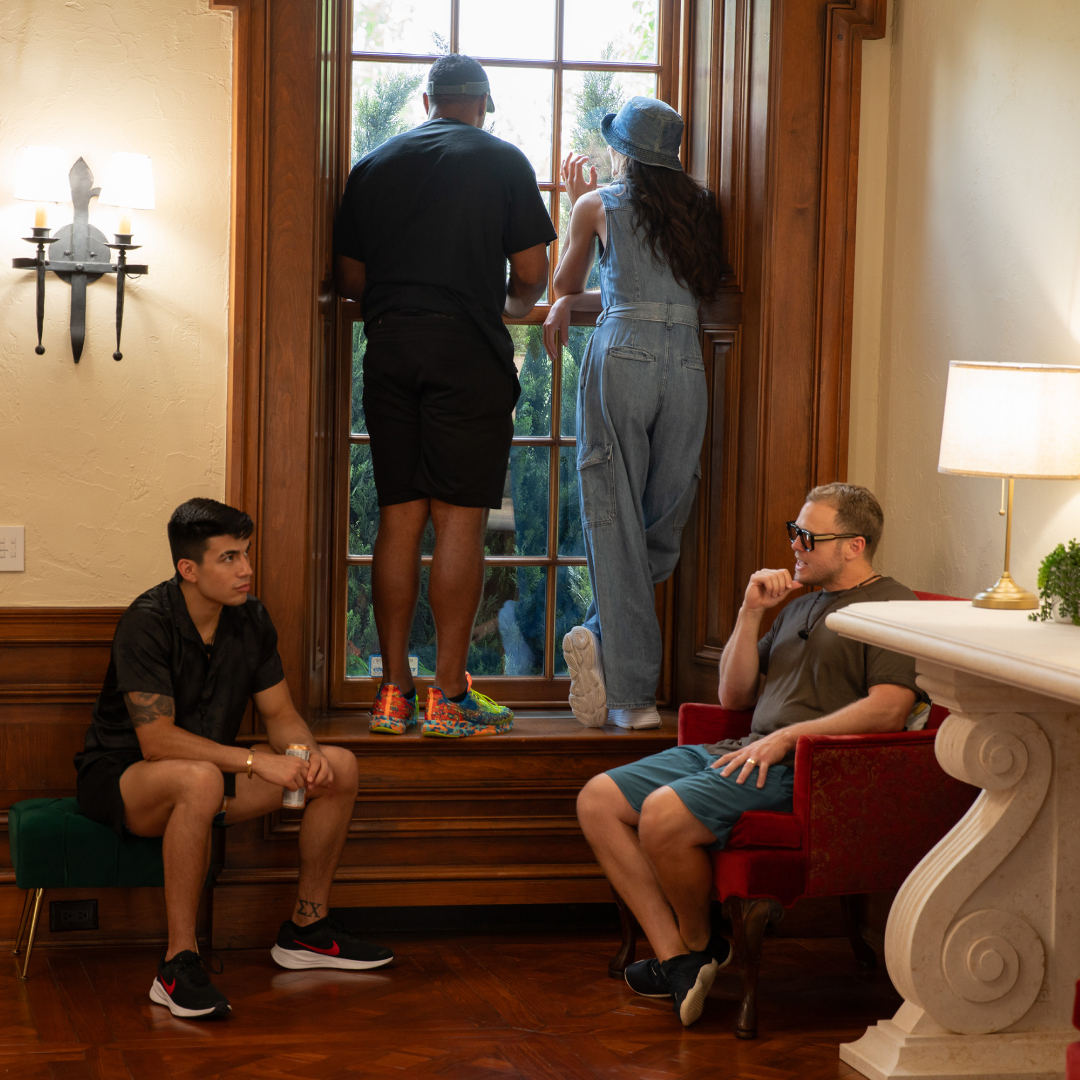'Squid Game: The Challenge' Is Reality TV at Its Voyeuristic, Dystopian Worst
Just because it’s can’t-turn-away television doesn’t mean it’s good.

Anyone who enjoyed watching Squid Game will likely devour Netflix's reality spin-off Squid Game: The Challenge. The reality series, which made its debut on the streamer on November 22 with the first of three weekly drops, is a Big Brother-style social competition that precisely recreates the premise from the hit K-drama, recreating the original's unsettling candy-colored sets, children's game-inspired challenges, and brutal (though in this case nonfatal) eliminations. As several reviews have pointed out (and as social media users clocked months ago upon seeing the show's trailer), Netflix's attempt to turn its most-watched show ever into an IP franchise strips away its central message as a horrifying fable on desperation under capitalism. Instead, Squid Game: The Challenge is the pure neutral evil of reality television: easy to binge, but soulless and devoid of any purpose or meaning.
Watching this reality show is a bleak experience, filled with the cognitive dissonance of seeing a hollow recreation of the drama created by people who didn't take its themes to heart. It's obvious from the first moments of the series that there were certain beats the reality show made to channel the original. The first "processing room" testimonial introduces a woman admitting that she's taking unpaid leave from work to be on the show, that she dreams of knowing what it's like to pay off her house. Minutes later, she's the first player out during Red Light, Green Light, followed by several others who fake draamatic "deaths" after an exploding ink pack signifies their elimination (instead of the original's bullets and blood). This short sequence is enough to demonstrate the most superficial interpretation of Squid Game's themes, and you can imagine some hypothetical producer in a control booth checking off a list. (In related news, an executive producer for the reality show told TV Guide that he believes "the anti-capitalist allegory is only one very small part of Squid Game.")
Any of the short supply of entertainment that comes with watching this show is found in either its unpredictability, as it inserts random mini-challenges and a new Battleship-style round between the iconic games, or its huge cast of characters. However, neither of those are strong enough to distract from the constant discomfort. Once you get past the initial shock of a new plot twist, each mini-challenge—which all happen in the dormitory and usually involve one player directly eliminating another—lacks any urgency as it reads as nothing more but a chance for producers to steer their designated main characters into the spotlight. Some of these cast members are genuinely charming, but most of them are either playing up their personalties to the point it'll make you wince, or they're flattened into stereotypes within their limited screen time. Not to mention, the show isn't afraid to let its instant stars get eliminated, which could be a smart choice if it didn't leave viewers with no connection to the remaining players once the ones they've spent time hating or loving are gone.

Even though Squid Game: The Challenge is a very jarring watch for fans who fully processed the themes of the original drama, it's still likely to find its own fanbase. It still has the trappings of every streaming-era reality hit: cliffhangers designed to keep viewers pressing the "Continue Watching" button, constant mind games that allow watchers to yell what they think players should do at the TV. When you can argue that half of reality TV's ratings nowadays come from hate-watching, a show like this is an easy greenlight for studios. It's also maybe a perfect case study for Hollywood's current capitalistic instincts.
It's telling that this series is arriving at a time where the vast chasm of differing opinion between the decision-makers running Hollywood and the practitioners who make up the industry—from writers and actors to critics and a large slice of super-fans—is more visible than ever. We're just coming off a series of strikes where the day-to-day workers that keep productions running went directly up against the studio and streaming executives on issues including IP rights. While the WGA strike ended in a favorable deal for the union, overseas filmmakers are still vulnerable to getting cut out of major deals. (Last June, LA Times reported that while Squid Game increased the value of Netflix by an estimated $900 million, creator Hwang Dong-hyuk received no residuals following the release of the show.)
The viewers who aren't thinking about Squid Game: The Challenge beyond it being an interesting new reality competition concept, or the closest thing we'll get to a Squid Game season 2 for several more months, or a mindless binge to keep on in the background of some other activity, will probably make the new reality show another ratings hit for Netflix. These viewers, like the hypothetical streaming execs who only care about merch opportunities and hours viewed, aren't looking for some big answers to societal ills out of their latest Netflix binge. That brain-off viewing is what made the streamer so successful, and at the right time, with the right content, it can be essential for staying sane as the world seems to fall apart. But a show like Squid Game, which was made to point out some of the ways society is set up to fail its most vulnerable, shouldn't be turned into a mindless IP grab. The flattening of its themes, via reality shows and interactive games that turn a moral fable into a simple game, make it harder for the meaning at the heart of the story to come through. If given the chance of which to watch, the original Squid Game is much better than this empty Challenge.
Stay In The Know
Get exclusive access to fashion and beauty trends, hot-off-the-press celebrity news, and more.
Quinci is a Culture Writer who covers all aspects of pop culture, including TV, movies, music, books, and theater. She contributes interviews with talent, as well as SEO content, features, and trend stories. She fell in love with storytelling at a young age, and eventually discovered her love for cultural criticism and amplifying awareness for underrepresented storytellers across the arts. She previously served as a weekend editor for Harper’s Bazaar, where she covered breaking news and live events for the brand’s website, and helped run the brand’s social media platforms, including Instagram, Facebook, and Twitter. Her freelance writing has also appeared in outlets including HuffPost, The A.V. Club, Elle, Vulture, Salon, Teen Vogue, and others. Quinci earned her degree in English and Psychology from The University of New Mexico. She was a 2021 Eugene O’Neill Critics Institute fellow, and she is a member of the Television Critics Association. She is currently based in her hometown of Los Angeles. When she isn't writing or checking Twitter way too often, you can find her studying Korean while watching the latest K-drama, recommending her favorite shows and films to family and friends, or giving a concert performance while sitting in L.A. traffic.
-
 A "No-Fly Zone" Has Been Placed Over King Charles's Home
A "No-Fly Zone" Has Been Placed Over King Charles's Home"It prompted a security scare."
By Amy Mackelden
-
 Kate and William's Decision to Skip Easter "Raised Eyebrows"
Kate and William's Decision to Skip Easter "Raised Eyebrows""It feels like a deliberate move and even a snub."
By Amy Mackelden
-
 Sarah Jessica Parker Test-Drives the New Platform Ugg
Sarah Jessica Parker Test-Drives the New Platform UggCarrie Bradshaw would have some thoughts on the exceedingly fluffy footwear.
By Amy Mackelden
-
 The Stars of 'Love Island USA' Season 6 Will Return to Our Screens This Summer
The Stars of 'Love Island USA' Season 6 Will Return to Our Screens This SummerWe're already clearing our summer schedules for 'Love Island: Beyond the Villa.'
By Quinci LeGardye
-
 Where Is 'Got to Get Out' Filmed? What to Know About the 80-Acre Luxury Estate in the Hulu Reality Show
Where Is 'Got to Get Out' Filmed? What to Know About the 80-Acre Luxury Estate in the Hulu Reality ShowA new competition series's eyecandy filming location has entered the chat.
By Quinci LeGardye
-
 Meet the Cast of 'Resident Playbook'
Meet the Cast of 'Resident Playbook'The spinoff of the hit K-drama 'Hospital Playlist' features several young actors as first-year OB-GYN residents.
By Quinci LeGardye
-
 Meet the Cast of Hulu's New Reality Show 'Got to Get Out
Meet the Cast of Hulu's New Reality Show 'Got to Get OutHulu's answer to 'The Traitors' is here.
By Quinci LeGardye
-
 Where Are the Members of The Squad From 'Bad Influence: The Dark Side of Kidfluencing' Now?
Where Are the Members of The Squad From 'Bad Influence: The Dark Side of Kidfluencing' Now?The names in the Netflix docuseries have fallen out of touch with subject Piper Rockelle.
By Quinci LeGardye
-
 Who Won 'Million Dollar Secret?' All About Winner Cara Kies
Who Won 'Million Dollar Secret?' All About Winner Cara KiesHere's what to know about the In-N-Out line cook who took home the prize pot.
By Quinci LeGardye
-
 Sydnee Falkner Is More Than the 'Million Dollar Secret' Mean Girl
Sydnee Falkner Is More Than the 'Million Dollar Secret' Mean GirlThe reality star dishes on everything from her regrets and the finale to what you didn’t see on-screen in Netflix’s latest hit.
By Quinci LeGardye
-
 Meet the Cast of 'Love on the Spectrum' Season 3
Meet the Cast of 'Love on the Spectrum' Season 3Netflix's Emmy-winning dating show returns with both fan-favorite couples and standout newcomers.
By Quinci LeGardye